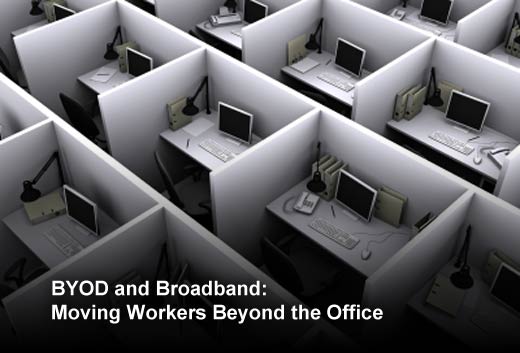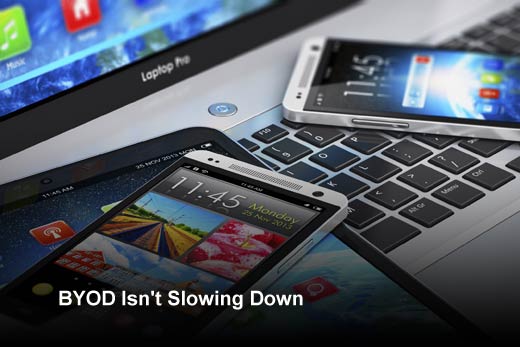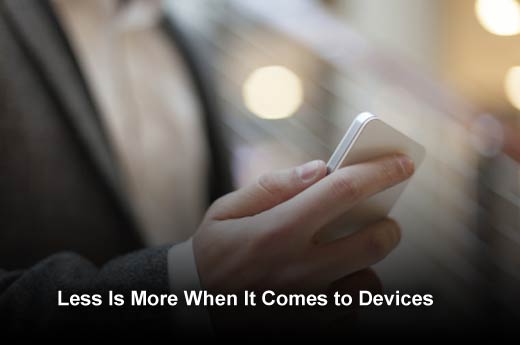On January 29, 2015, the Federal Communications Commission (FCC) triggered a transformation in Internet availability by changing the definition of broadband. Beyond making lightning-fast Internet more accessible, this development heralds something even greater for businesses: the death of traditional cubicle culture.
It’s no secret that today’s workforce demands flexible work-from-home policies. Many fear-driven employers still keep workers caged in a single office building, but with broadband connection speeds more readily available than ever, employee demand will soon reach a breaking point.
As the death of the cubicle approaches, businesses will soon recognize the benefits of the free-range worker. With the latest technology developments, today’s workforce can collaborate from anywhere using tools such as videoconferencing and cloud-based phone systems. Companies can broaden their talent pool by hiring the best talent available – not just those within a fixed geographical area. To help businesses prepare for this shift, Daryl Reva, vice president of marketing at the business phone systems provider Fonality, has outlined the benefits of offing the old office culture.
Daryl Reva is vice president of marketing for Fonality, a cloud-based business phone system and unified communications company serving small- to medium-sized businesses.
BYOD and Broadband: Moving Workers Beyond the Office
Click through to see how broadband and BYOD are changing office culture as we know it, as identified by Daryl Reva, vice president of marketing at Fonality.
BYOD Isn’t Slowing Down
In fact, its growth rate is skyrocketing. According to Tech Pro Research, roughly three-fourths of all organizations will have adopted a BYOD policy of some sort by 2017. As online collaboration tools continue to improve, companies won’t have to restrict their workforce by geographical location.
Homework Isn’t Just for Students Anymore
Giving employees the freedom to work from home doesn’t mean sacrificing productivity, since working from home no longer brings connectivity limitations. In fact, at-home workers’ performance increased 13 percent over a nine-month study comparing office and work-from-home situations conducted by two Stanford researchers.
Who Wouldn’t Want a Healthier Workforce?
BYOD means better health, because it frees employees from being trapped in an office building. Huffington Post explains how people who work from home report higher work satisfaction and less exhaustion, and they get better sleep.
Less Is More When It Comes to Devices
Nearly 60 percent of employees in booming business markets prefer sharing one device between their job and personal life, says data collected by a University of Calgary study. A BYOD policy allows workers to streamline their personal and work devices, making it easier to keep everything in one place and allowing employees to be connected as much as possible.
Let the Bottom Line Speak for Itself
Cisco discovered telecommuting once a week saves $2,500 per employee annually. A BYOD policy allows employees to work via telecommuting, saving large corporations and small businesses thousands of dollars without sacrificing work quality or quantity.
Even the Government Is Contributing
Broadband Internet is becoming more available and more accessible thanks to reinforcement from federal regulations and initiatives combined with greater coordination between communities and services. The growth of broadband allows effortless device connection from almost anywhere, making BYOD policies the obvious choice for businesses moving forward.









